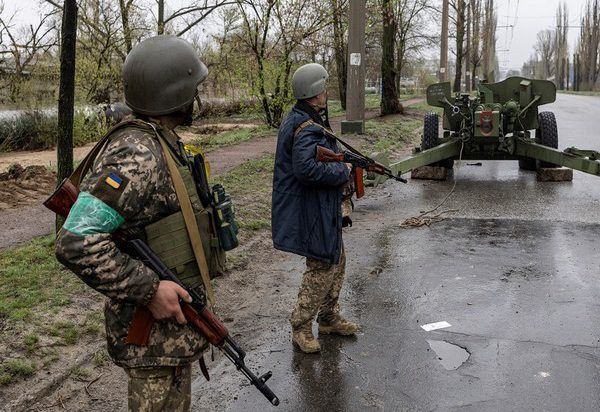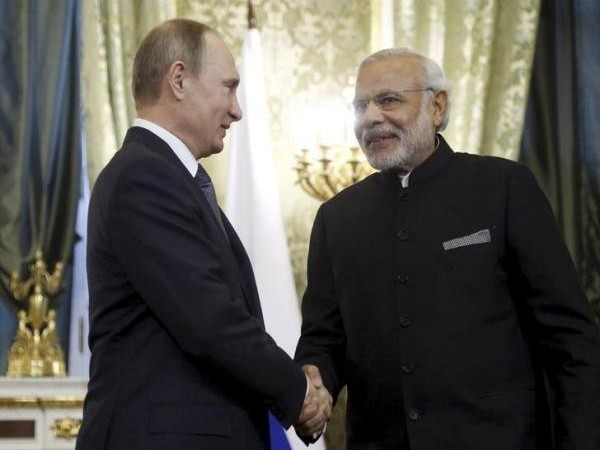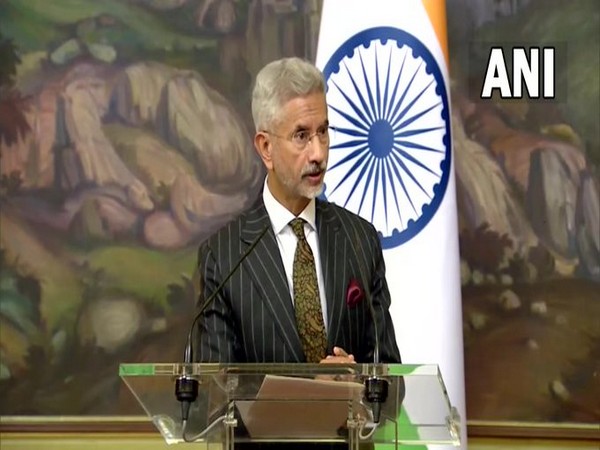The US on Thursday (local time) described “Russia as an acute threat” and China as “the only competitor” at the Department of Defence National Defence Strategy.
At a conference at the Pentagon detailing the DoD National Defence Strategy, US Defence Secretary Lloyd Austin said, “And we remain vigilant against the ongoing threat from global terrorist networks–as well as from climate change, pandemics, and other dangers that don’t respect borders. At the same time, the NDS bluntly describes Russia as an acute threat. And we chose the word ‘acute’ carefully”.
“As the President’s National Security Strategy notes, the PRC is the only competitor out there with both the intent to reshape the international order and, increasingly, the power to do so,” added Austin.
The Defence Department for the first time released the public versions of three strategic documents — the National Defence Strategy, the Nuclear Posture Review and the Missile Defence Review — together after having developed both the classified and unclassified versions of all three in conjunction with one another.
“I am pleased to announce that the Department is publicly releasing our unclassified National Defence Strategy. And this strategy nests beneath President Biden’s National Security Strategy, which was released earlier this month,” said Austin.
Producing the documents together, Austin ensured tight linkages between DOD strategy and resources.
“By weaving these documents together, we help ensure that the entire department is moving forward together, matching our resources to our goals,” Austin said. “The strength and combat credibility of the joint force remains central to integrated deterrence.”
The 2022 National Defence Strategy, or NDS, places a primary focus on the need to sustain and strengthen US deterrence against China. It also advances a focus on collaboration with a growing network of US allies and partners on shared objectives.
In addition to addressing both China and an increase in the importance of partnerships, the NDS also takes into account the challenges posed by Russia — especially considering its invasion of Ukraine — along with threats posed by North Korea, Iran and violent extremist organizations. The NDS also includes a focus on challenges to security, such as pandemics and climate change, read the US DoD press release.
“And above all, the NDS demands even deeper investments in our people. They will always be this department’s most valuable resource, and the bedrock of American security,” said Austin.
The US Defence Secretary also laid out four top-level defence priorities the department must pursue.
They include: Defending the homeland, paced to the growing multi-domain threat posed by China; Deterring strategic attacks against the United States, allies, and partners; Deterring aggression while being prepared to prevail in conflict, when necessary; prioritizing the challenge posed by China in the Indo-Pacific region the Russia challenge in Europe and Building a resilient joint force and defence ecosystem.
He also provided three ways to advance those priorities. These include integrated deterrence, campaigning, and the building of an enduring advantage.
“First, we’re seamlessly integrating our deterrence efforts to make a basic truth crystal-clear to any potential foe. And the truth is: The costs of aggression against the United States or our allies and partners far outweigh any conceivable gains. Second, the NDS emphasizes the day-to-day work of campaigning. That means conducting and sequencing military activities that, over time, shift the security environment in our favour. And third, we’re building enduring advantages to further strengthen the foundations of our defence enterprise,” said Austin.
With the US nuclear capability remaining the “ultimate backstop” for strategic deterrence, the secretary said the department plans to continue modernization efforts on the nuclear triad. The fiscal 2023 budget request, for instance, includes some USD34 billion to sustain and modernize nuclear forces, he said.
The budget request also includes more than USD 56 billion for air-power platforms and systems, more than USD 40 billion to maintain US dominance at sea, and nearly USD 13 billion to support and modernize land forces, added the press release.
“Integrated deterrence isn’t just about steps that we take on our own,” he said. “It also means working even more closely with our unparalleled network of allies and partners to deter aggression in the region after region,” he said.
In the Indo-Pacific region, he said, that’s evident with Australia, UK, US, or AUKUS agreement, and in the trilateral cooperation agreement with Japan and Korea.
Across the Atlantic, he said, partnerships that support integrated deterrence efforts include NATO and the recently created Ukraine Defence Contact Group, which helps support Ukraine’s self-defence goals.
A campaigning, Austin said, means conducting and sequencing the military activities which over time shift the security environment in favour of the United States, said the release.
“It means working to limit and disrupt malign activities by our competitors,” he said. “We’re building and exercising the forces we’ll need in a crisis or a conflict, including requesting USD 135 billion in last year’s budget to further invest in our readiness.”
To build an enduring advantage for the United States, Austin said, the department is working to further strengthen the foundations of the defence enterprise, added the release.
“Innovation is central here,” he said. “Last year, for instance, we established the Rapid Defence Experimentation Reserve, which funds different parts of the department to work together to fill critical joint warfighting gaps. And our fiscal year 2023 budget request included more than USD 130 billion for research, development, testing and evaluation — that’s the largest R&D budget number in DOD history.” (ANI)
Read More:http://13.232.95.176/









